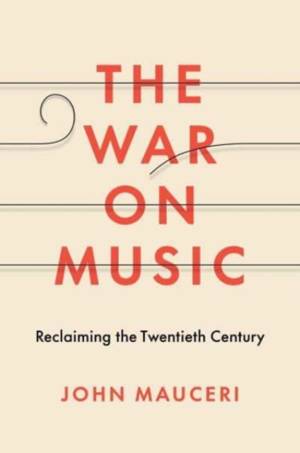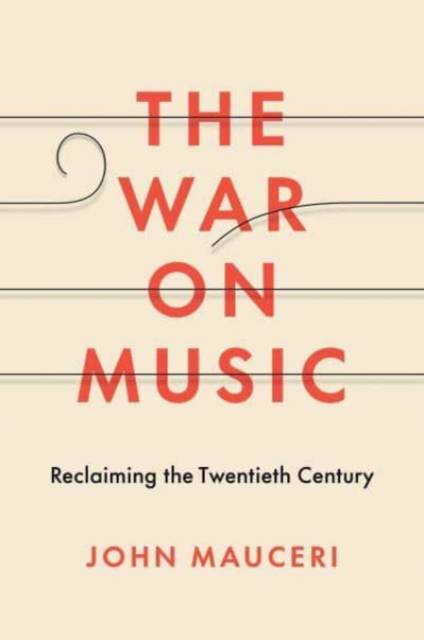
- Afhalen na 1 uur in een winkel met voorraad
- Gratis thuislevering in België vanaf € 30
- Ruim aanbod met 7 miljoen producten
- Afhalen na 1 uur in een winkel met voorraad
- Gratis thuislevering in België vanaf € 30
- Ruim aanbod met 7 miljoen producten
Zoeken
€ 33,95
+ 67 punten
Omschrijving
A fascinating journey into global politics that made classical music a proxy for power, inadvertently creating the "sound of Hollywood," and excluding hundreds of composers "[Mauceri's] writing is more exhilarating than any helicopter ride we have been on."--Air Mail "Fluently written and often cogent."--Barton Swaim, Wall Street Journal John Mauceri offers a lively and passionate reassessment of classical music in the twentieth century, in which he argues that the history of music during the last century was shaped by its three major conflicts: World War I, World War II, and the Cold War. The War on Music unlocks the mystery of why classical music seemingly produced so few eternal works after 1950, whereas other arts--popular music, Broadway, literature, painting, architecture, theater, cinema--have given the world myriad beloved and highly regarded masterpieces; why the composers considered the future of classical music in the 1920s disappeared from being performed after World War II; why the most heard symphonic scores of the century--music for Hollywood films--became the subject of brutal denigration and dismissal; why the avant-garde of the pre-World War I became the new lingua franca of the Cold War period in the West, and any music that veered from its requirements removed from being performed. Mauceri follows the data to demonstrate how the politics of global wars used an artform that many might consider unimportant--classical music--as a potent and effective symbol, target, and weapon. Based on more than a half-century of music making and discovery, The War on Music is a plea to return the suppressed repertory--beautiful and unique expressions of humanity--to our concert halls and opera houses, much as the artwork stolen by the Nazis continues to be returned to its rightful owners.
Specificaties
Betrokkenen
- Auteur(s):
- Uitgeverij:
Inhoud
- Aantal bladzijden:
- 248
- Taal:
- Engels
Eigenschappen
- Productcode (EAN):
- 9780300233704
- Verschijningsdatum:
- 26/04/2022
- Uitvoering:
- Hardcover
- Formaat:
- Genaaid
- Afmetingen:
- 166 mm x 243 mm
- Gewicht:
- 503 g

Alleen bij Standaard Boekhandel
+ 67 punten op je klantenkaart van Standaard Boekhandel
Beoordelingen
We publiceren alleen reviews die voldoen aan de voorwaarden voor reviews. Bekijk onze voorwaarden voor reviews.











